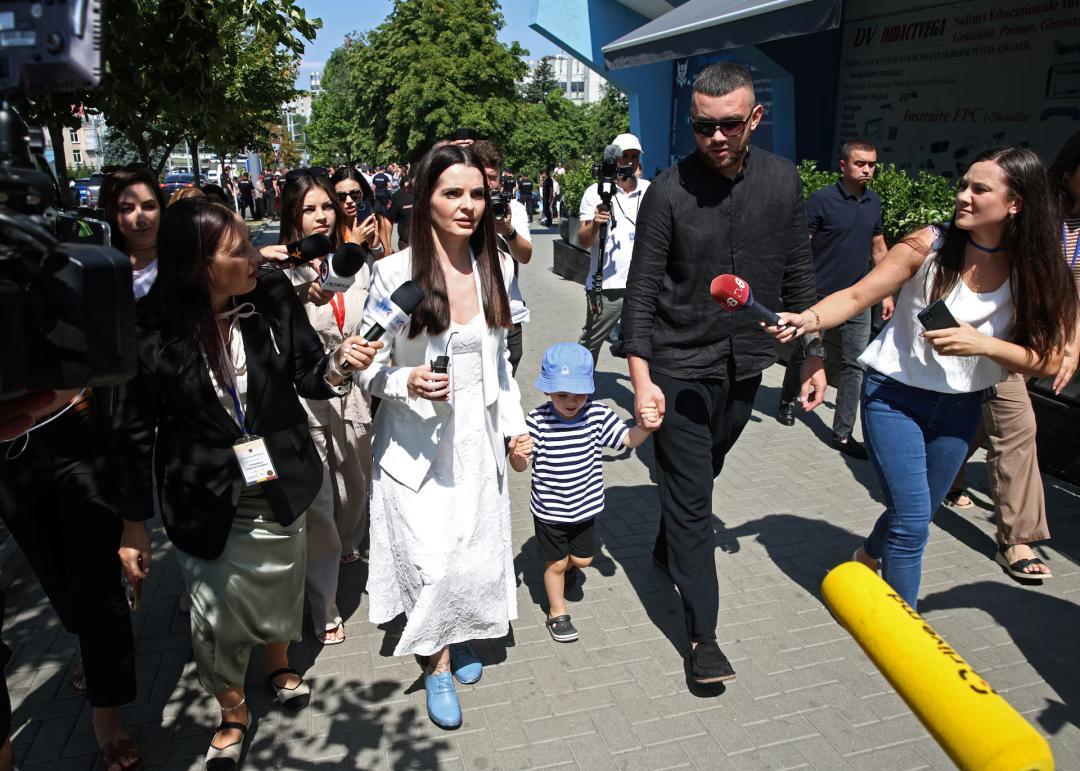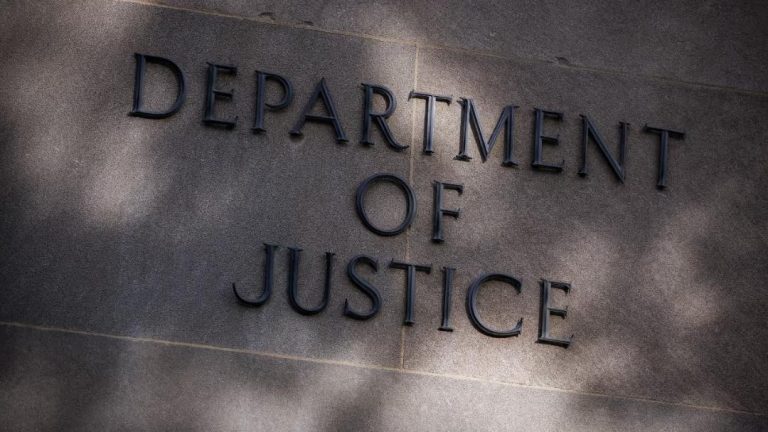
Moldova Leader Jailed for 7 Years Over Russian Funding; Russia Reacts
In a move that has sparked tensions with Moscow, a Moldovan court has sentenced Yevgenia Gutsul, a pro-Russia regional leader, to seven years in prison for using Russian money to finance a political party. The decision has been met with outrage from Gutsul, who claims she was unfairly targeted for her pro-Russian stance.
Gutsul, who was the leader of the Party of Socialists of the Left Unity, a pro-Russian party in Moldova, was arrested in June 2025 on charges of using Russian funding to finance her party. The charges were widely seen as politically motivated, with many believing that the Moldovan government was seeking to silence a vocal critic of its pro-Western policies.
The Moldovan court’s decision to sentence Gutsul to seven years in prison has been condemned by Russia, which has accused the Moldovan government of unfairly targeting Gutsul for her political beliefs. Russian spokesperson Maria Zakharova released a statement in which she described Gutsul’s sentencing as “unjust” and claimed that she had been sentenced “for lawfully fulfilling her duty”.
“This decision has nothing to do with justice…It’s a political massacre,” Gutsul said in a statement released by her lawyer. “I am a political prisoner, a victim of political revenge.”
Gutsul’s party, the Party of Socialists of the Left Unity, has long been seen as a proxy for Russian interests in Moldova. The party has received significant funding from Russia in the past, and Gutsul has been a vocal supporter of Russian President Vladimir Putin.
The Moldovan government has accused Gutsul and her party of being used by Russia to undermine the country’s sovereignty and independence. The government has also accused Russia of meddling in Moldovan politics, a charge that Russia has denied.
The sentencing of Gutsul has sparked concerns about the future of Russian-Moldovan relations. The two countries have had a tense relationship in recent years, with Moldova seeking to strengthen its ties with the European Union and NATO.
The Moldovan government has been accused of being overly dependent on EU and NATO support, and Gutsul’s party has been seen as a key player in promoting Russian interests in the country.
The sentencing of Gutsul has also sparked fears about the impact on Moldovan politics. The country is set to hold parliamentary elections in 2026, and many believe that Gutsul’s sentencing could be a attempt to silence her and prevent her from running in the election.
Gutsul’s party has been a key player in Moldovan politics for many years, and her sentencing has been seen as a attempt to undermine her party’s influence.
The Moldovan government has denied any political motivations behind Gutsul’s sentencing, claiming that the decision was made based on the evidence presented in court.
However, many believe that the sentencing of Gutsul is a political decision, designed to silence her and prevent her from running in the upcoming election.
The sentencing of Gutsul has sparked a heated debate about the future of Russian-Moldovan relations. Many believe that the decision could lead to a deterioration in relations between the two countries.
The Moldovan government has accused Russia of meddling in Moldovan politics, and the sentencing of Gutsul has been seen as a attempt to undermine Russian influence in the country.
The Russian government has denied any involvement in Moldovan politics, but many believe that Russia is seeking to maintain its influence in the country.
The sentencing of Gutsul has sparked concerns about the future of Moldovan politics. The country is set to hold parliamentary elections in 2026, and many believe that the decision could have a significant impact on the outcome of the election.
The Moldovan government has been accused of being overly dependent on EU and NATO support, and Gutsul’s party has been seen as a key player in promoting Russian interests in the country.
The sentencing of Gutsul has also sparked fears about the impact on Moldovan democracy. Many believe that the decision could be seen as a attempt to undermine the country’s democratic institutions.
The Moldovan government has denied any political motivations behind Gutsul’s sentencing, claiming that the decision was made based on the evidence presented in court.
However, many believe that the sentencing of Gutsul is a political decision, designed to silence her and prevent her from running in the upcoming election.
The sentencing of Gutsul has sparked a heated debate about the future of Russian-Moldovan relations. Many believe that the decision could lead to a deterioration in relations between the two countries.
The Moldovan government has accused Russia of meddling in Moldovan politics, and the sentencing of Gutsul has been seen as a attempt to undermine Russian influence in the country.
The Russian government has denied any involvement in Moldovan politics, but many believe that Russia is seeking to maintain its influence in the country.
The sentencing of Gutsul has sparked concerns about the future of Moldovan politics. The country is set to hold parliamentary elections in 2026, and many believe that the decision could have a significant impact on the outcome of the election.
As the situation continues to unfold, many are left wondering what the future holds for Moldova and its relations with Russia.






